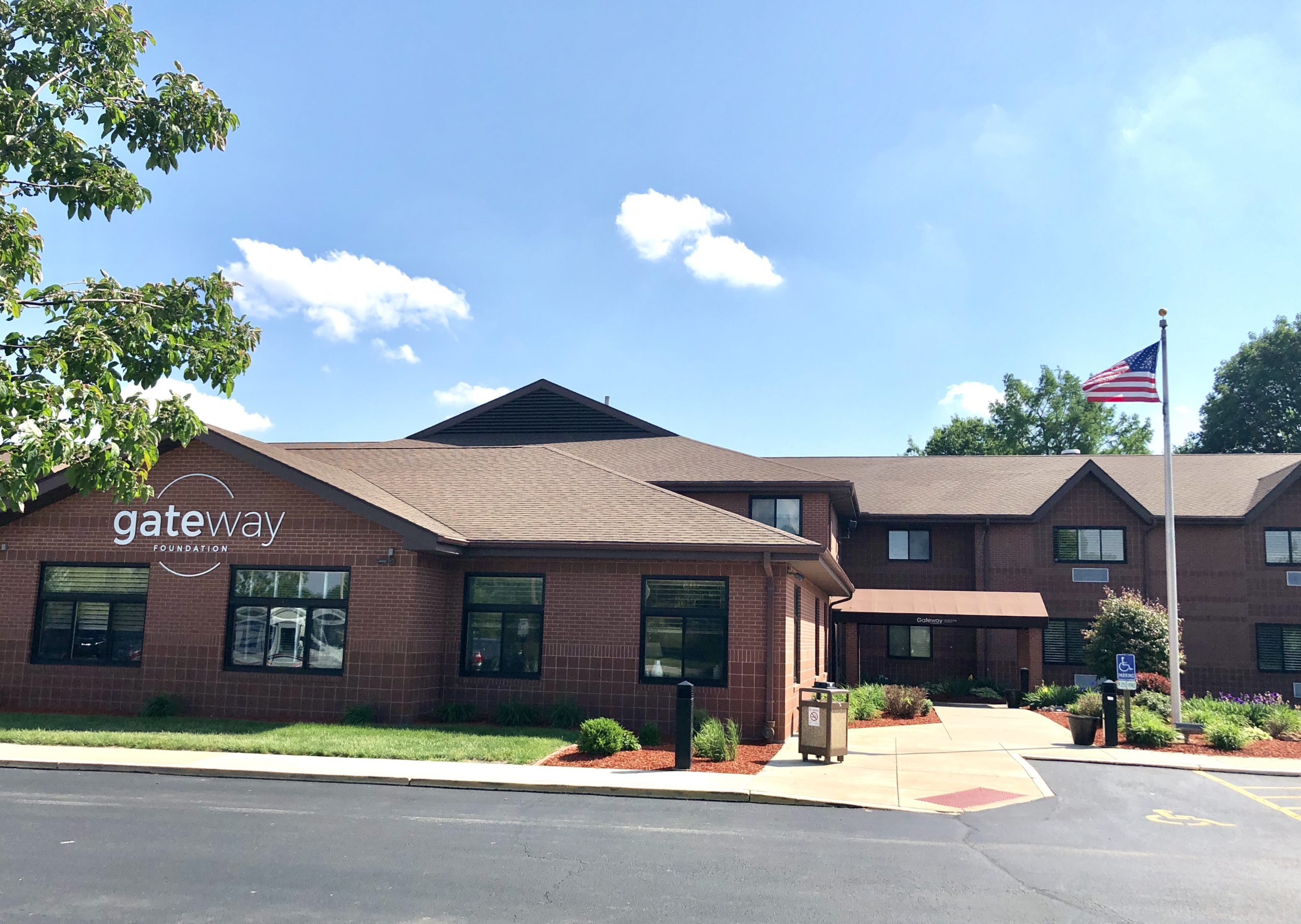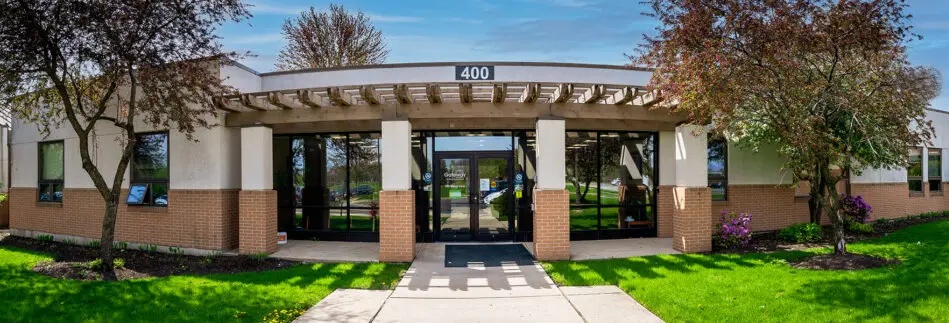Find Sustainable Change Through Caring Care at New Origins in San Bernardino County
Find Sustainable Change Through Caring Care at New Origins in San Bernardino County
Blog Article
Deciphering the Truths and misconceptions Bordering Dependency Treatment Options
You may assume dependency is just an ethical falling short or that therapy just works after hitting rock bottom. The fact is a lot more complex. Addiction is a chronic illness that needs recurring treatment, and therapy options differ commonly. By understanding the realities and misconceptions surrounding these choices, you can much better navigate the path to healing. What you uncover might transform your perspective on looking for help and assistance.
Understanding Dependency as a Persistent Disease
Understanding addiction requires acknowledging it as a chronic disease, similar to diabetes or cardiovascular disease. You may think about dependency as a moral falling short, yet it is necessary to watch it with a clinical lens. Much like any kind of persistent condition, dependency can entail adjustments in brain chemistry and structure, leading to compulsive behavior.When you recognize addiction in this manner, it becomes clear that therapy isn't about determination; it has to do with managing a complicated health issue. This understanding can help you discover the right therapy choices, whether that's medication, treatment, or assistance groups.Recognizing addiction as a persistent disease also encourages compassion, allowing you to support loved ones battling with it. You'll see that recovery is commonly a long-lasting process, needing ongoing care and support. With this point of view, you can better appreciate the difficulties dealt with by those affected and add to a much more helpful setting for healing.
Typical Misconceptions Concerning Addiction Therapy
Many individuals hold misunderstandings about addiction treatment that can impede recovery initiatives. One usual misconception is that dependency is just an absence of willpower. This idea disregards the intricate nature of dependency as a persistent condition that influences mind chemistry. Another misconception recommends that therapy just functions if somebody strikes "all-time low." In truth, numerous people can profit from early intervention, making it essential to seek aid earlier instead than later on. Some likewise assume that rehabilitation is a one-size-fits-all remedy. Reliable treatment is personalized and thinks about various aspects like individual requirements and scenarios. In addition, lots of believe that once therapy is full, recuperation is guaranteed. Recovery is a continuous process that calls for continued assistance and approaches. By disproving these misconceptions, you can approach dependency treatment with a more clear understanding, inevitably increasing your chances of effective recuperation and a healthier life.
The Relevance of Evidence-Based Strategies

Kinds of Treatment Choices Offered
After acknowledging the significance of evidence-based approaches in addiction treatment, it's vital to discover the different choices available to you. One popular selection is inpatient treatment, where you remain at a center for intensive treatment and assistance. This choice offers an organized atmosphere, focusing and minimizing interruptions on recovery.Outpatient treatment, on the other hand, allows you to go to treatment sessions while living in the house, supplying versatility for job or family commitments. You could also take into consideration medication-assisted therapy, which integrates medicines with counseling to attend to compound usage conditions effectively.Behavioral treatments, such as Cognitive Behavior Modification (CBT) and Dialectical Habits Treatment (DBT), aid you determine and transform unfavorable idea patterns. Support groups, like Twelve step programs (AA) or Narcotics Anonymous (NA), offer neighborhood and shared experiences. Each choice has its toughness, so it's important to analyze your needs and preferences to discover the most effective fit for your healing trip.
The Duty of Assistance Equipments in Recuperation
Support group play an essential duty in your recovery journey. Engaging with family, good friends, and peer networks can offer the motivation and liability you require to remain on track. When you border on your own with a supportive neighborhood, you're most likely to overcome obstacles and accomplish enduring modification.
Relevance of Area Support
Community assistance plays an important duty in addiction recuperation, as it cultivates a sense of belonging and accountability. When you surround on your own with others that comprehend your struggles, you'll discover motivation and inspiration to remain on track. Engaging with support groups or neighborhood programs creates a safe area where you can learn and share experiences from each various other. These links help decrease sensations of seclusion, which frequently accompany addiction. By participating actively, you acquire understandings and strategies that boost your coping skills. Plus, being part of an area permits you to commemorate landmarks, reinforcing your dedication to recuperation. Inevitably, the collective stamina of a supportive network can make all the difference in your trip towards a healthier, sober life.
Family Involvement in Recuperation
While several aspects add to effective healing, family members participation typically stands apart as a crucial element in the recovery procedure. Your household can provide a nurturing environment that fosters understanding and concern. When they actively take part in your recuperation journey, they can help you remain responsible and determined. Open up communication permits you to share your feelings and ideas, helping to restore count on and strengthen bonds.Additionally, relative can discover dependency and recuperation, making them much better furnished to sustain you. Their inspiration can assist you face obstacles and commemorate turning points along the way. Inevitably, having a strong family assistance system can significantly improve your possibilities of keeping long-term soberness and attaining a much healthier, happier life.
Peer Assistance Networks
Household involvement can substantially boost your recuperation, but peer assistance networks likewise play a necessary role in your journey. Getting in touch with others that share similar experiences can supply you with understanding, sociability, and motivation. These networks create a secure area where you can freely review your difficulties and triumphes without concern of judgment.Engaging with peers in recuperation assists you realize you're not the only one, and it can encourage you to stay with your objectives. Regular meetings and shared experiences foster accountability, making it simpler to browse bumpy rides. Whether through assistance teams or on the internet forums, these connections can enhance your resolve and deal practical guidance. Accept these networks; they can be a lifeline in your healing process.
Customized Therapy Strategies: Why One Size Doesn't Fit All
Dependency treatment isn't a one-size-fits-all solution; it calls for a customized technique that considers your unique scenarios and needs. Everyone's trip through dependency is various, affected by variables like individual background, mental health, and support group. That's why an individualized therapy plan is crucial for your success.When you take part in a customized plan, professionals can determine particular triggers and challenges you encounter. This allows them to advise therapies and interventions that reverberate with you, whether it's cognitive-behavioral therapy, medication-assisted treatment, or all natural approaches.Moreover, your choices and way of living play review a considerable duty in the treatment procedure. You're most likely to stay devoted to a plan that feels right for you. So, do not go for generic Related Site services; advocate for a therapy path tailored to your individual needs. Bear in mind, the extra individualized your approach, the higher your possibilities for lasting healing.
Ongoing Recovery: The Trip Beyond Therapy
Recuperation does not finish when therapy is over; it's just the beginning of a long-lasting commitment. Building a solid support group can make all the distinction in avoiding and taking care of obstacles seclusion. You'll require effective coping strategies to deal with minutes of solitude along the means.

Support Equipments Issue The Majority Of
While maneuvering the journey past therapy, having a strong support group can make all the difference in your ongoing recuperation. Surrounding yourself with people that comprehend your struggles and objectives creates a security web. When you face obstacles, friends, family members, and assistance teams can provide support. They supply accountability, assisting you remain committed to your healing journey. Sharing experiences with others who have actually walked a similar course can impart hope and durability. Remember, it's fine to lean on them; you're not alone. Choose connections that uplift you, and be open about your sensations. Cultivating these relationships cultivates a feeling of belonging, which is important for preserving your progression and steering through the ups and downs of recovery.
Lifelong Commitment to Healing
Embracing a long-lasting commitment to recuperation means acknowledging that the trip does not finish after treatment; it's a constant procedure calling for commitment and self-awareness. You'll locate that maintaining your recuperation involves day-to-day choices and ongoing individual development. It's essential to develop regimens that support your well-being and strengthen the lessons found out during treatment. Remaining gotten in touch with your support group, whether via treatment, support teams, or friendships, can give accountability and encouragement. Be positive in resolving triggers and difficulties as they emerge, and do not be reluctant to seek assistance when needed. Bear in mind, recuperation isn't almost avoiding compounds; it's regarding building a meeting life that lines up with your goals and values. Accept this trip, and commemorate your progress along the means.
Coping Strategies for Solitude
Really feeling lonely throughout continuous healing can be challenging, particularly as you browse the modifications in your life. To deal, attempt connecting to helpful family and friends. They can advise you that you're not the only one in this journey. Think about joining support system where you can get in touch with others encountering comparable struggles. Participating in activities or pastimes you appreciate can additionally aid inhabit your mind and foster links. Volunteering is an additional great method to fulfill brand-new people while returning to your community. Finally, don't underestimate the power of self-care; practicing journaling, meditation, or mindfulness can help you process your feelings. Remember, it's fine to seek specialist aid if solitude ends up being overwhelming. You are entitled to support as you proceed your recuperation trip
Often Asked Questions
Can Addiction Be Treated Without Professional Aid?
Yes, dependency can be handled without specialist help, however it's difficult. You'll require solid support group, self-discipline, and efficient coping strategies. Seeking professional advice significantly enhances your possibilities for successful recuperation and long lasting adjustment.
What Function Does Family Play in Therapy Success?

Are Alternate Treatments Reliable in Dealing With Addiction?
Alternative treatments can be reliable in treating dependency (New Origins Addiction Treatment Center). You could discover art, yoga, or mindfulness therapy advantageous, as they use all natural approaches that complement standard approaches, helping you manage anxiety and promote total health
The Length Of Time Does Dependency Therapy Usually Last?
Addiction treatment usually lasts anywhere from a few weeks to a number of months, depending upon your requirements. It often consists of treatment, support, and detox groups, all customized to aid you accomplish long-term recuperation and wellness.
What Takes Place if Therapy Doesn't Work?
If therapy does not work, you might feel prevented, yet it is essential to reassess your choices. You can explore various therapies, assistance groups, or even a different technique to discover what truly reverberates with you.
Conclusion
To sum up, understanding addiction as a chronic illness is important in eliminating misconceptions about treatment. By identifying that effective healing calls for evidence-based strategies and customized treatment, you can take the initial steps towards healing. Bear in mind, it's all right to look for help and lean on support systems as you browse your journey. Recovery isn't a location but a recurring procedure. Accept the course in advance, and understand that with the right tools and assistance, you can achieve long-term change. Many her comment is here people hold false impressions regarding addiction therapy that can impede recuperation efforts. In addition, many believe that as soon as treatment is total, recuperation is ensured. Healing doesn't end when therapy is over; it's just the beginning of a long-lasting dedication. While steering the journey past treatment, having a strong support system can make all the distinction in your recurring recovery (New Origins Addiction Treatment Center). Welcoming a lifelong commitment to recuperation suggests recognizing that the trip doesn't end after treatment; it's a continuous procedure needing dedication and self-awareness
Report this page